

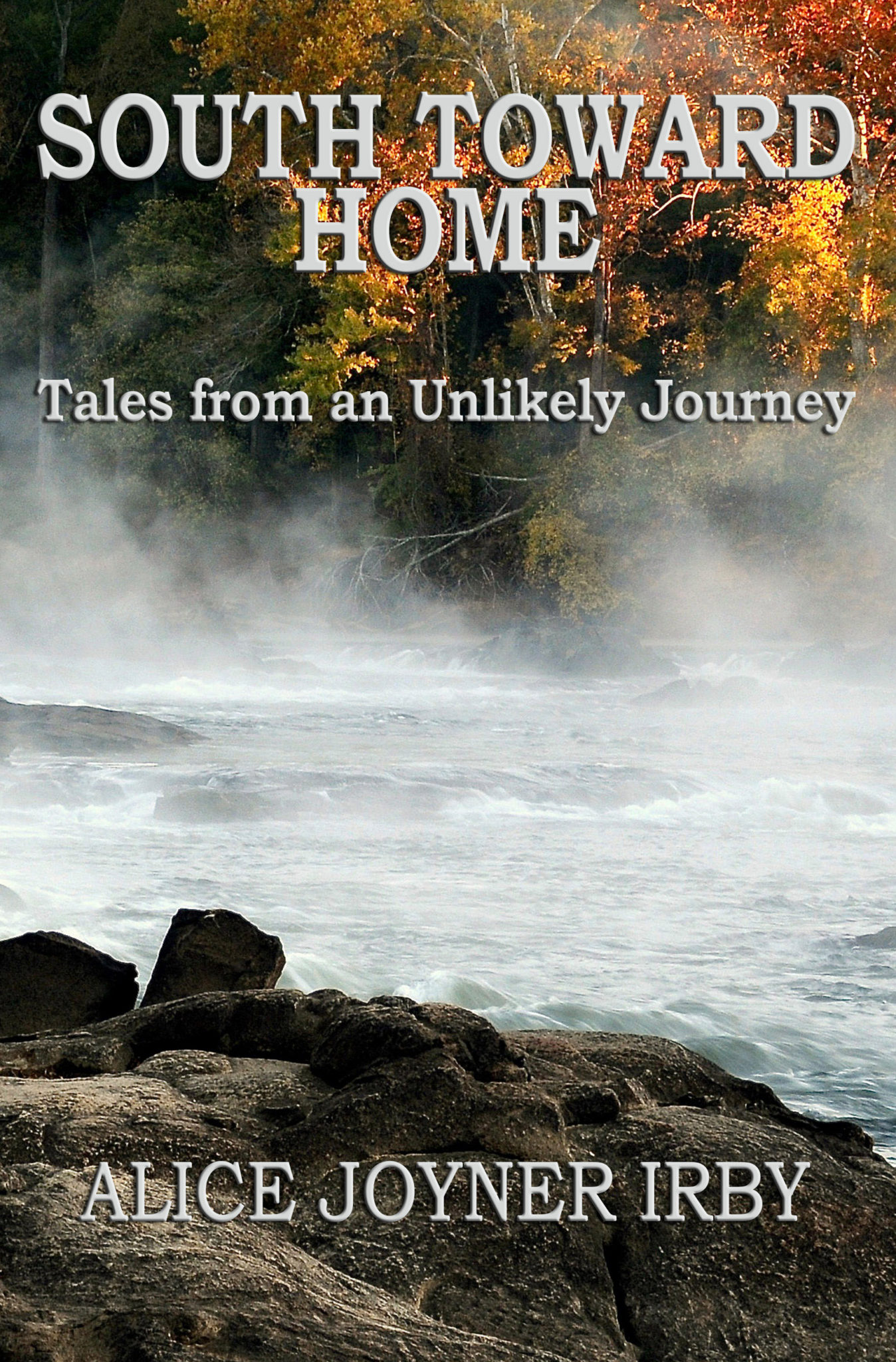
When I first met Alice Joyner Irby, I knew she had an extraordinary story to tell about her life, her family and people who crossed her path.
As she finished each chapter over a little less than year, I knew her extraordinary book was being created. And now it is here as South Toward Home, available on Amazon and in fine bookstores everywhere.
The Not-So-Friendly Skies is one of 26 stories in the book where Alice shows her grit in her struggle for women’s equal rights in a world dominated by men in the early 1960s.
By Alice Joyner Irby
MIXING IT UP
The Not-so-Friendly Skies
In the early 1960s B.C.—before cocaine, cohabitation, and the crises of riots and protests—it was business as usual for the airlines. At United Airlines (UA), that included Executive flights, code name for “men only.”
Two colleagues, Dick Watkins and Dick Burns—both heavy-set, tall men—and I were working together on a college grade-prediction study for Educational Testing Service (ETS), where I was then employed. The study included all four-year colleges in Indiana, 19 of them. Its purpose was to study the relationship among students’ high-school grades, SAT scores, and first-year grades in college.
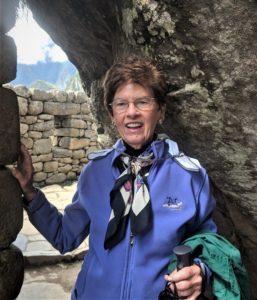
Alice Joyner Irby in The Sacred Valley, Peru – 2018
Our fieldwork included visiting each college, explaining the project to participating administrators, and collecting data on freshman classes for analysis back in Princeton at ETS. Over a period of three years, the three of us regularly flew together to Chicago and then to various cities in Indiana.
At least it started out that way. Then, one day, the two Dicks were booked on a flight different than the one on which I was ticketed. Pleased that she was able to offer an upgrade, the travel agent arranged for them to go on something called an Executive flight. I did not qualify and instead had to go on an earlier flight and wait for my colleagues in O’Hare Airport so that the three of us could take a puddle-jumper down to an Indiana city.
“This won’t do,” I thought—even though the Women’s Lib movement was only a gleam in Betty Friedan’s eye and did not get into full swing until the early 1970s. And, it wasn’t until the Civil Rights Act of 1964, Title VII, that federal legislation called for equal treatment in employment regardless of sex, race, color, religion, or national origin. Other legislation followed concerning housing, creditors and credit availability, and the well-known Title IX (1972). I was not an activist, but I expected to be treated fairly, and in this case, that meant being treated on a par with my peers.
For a while, I did nothing other than complain to myself and a few friends that every time I started out for Indiana, I got a little hot under the collar.
“Let’s see what we can do,” said Greg, a friend. At the time of our next scheduled trip, Greg and I decided to go to Newark airport to seek booking for me on the Executive flight scheduled to leave later that day. I already had a ticket on the earlier flight, knowing I would probably have to use it—but hoping an enlightened agent would rally to my cause.
“I am booked on Flight UA 323 to Chicago but want to change that to Flight UA 829 to be on the same plane as my colleagues.” I explained at the ticket counter. “My colleagues are Mr. Richard Watkins and Mr. Richard Burns,” I elaborated.
The United Airlines agent explained that the flight was not open to me.
“I know there are seats available, because I checked before I came,” I countered.
“It’s an Executive flight,” she stated.
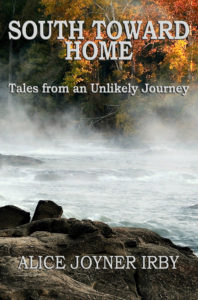 “What does the term ‘executive’ mean? Is it a title?” Greg asked. “Or a level of education? Or size of desk or office? Or having supervisory authority? If so, Mrs. Irby has the same credentials as her two male colleagues.”
“What does the term ‘executive’ mean? Is it a title?” Greg asked. “Or a level of education? Or size of desk or office? Or having supervisory authority? If so, Mrs. Irby has the same credentials as her two male colleagues.”
The ticket agent paused, somewhat taken aback, then was clearly unable to give us a definition of “Executive.” She fumbled her words, saying something like, “The men on these flights have to work while in the air, and it is very distracting for women with small children to be on the same flight. They need quiet. You have a seat on the plane that is waiting to take off now…,” the agent attempted to explain.
“You mean Flight 829 is for men only? Is that right?” I asked with an edge in my voice.
When we didn’t leave and continued to press the issue, the agent excused herself and disappeared behind the partition at the back of the counter. A second agent came out, another woman, who reiterated the first agent’s words: “The flight is for executive men who need a quiet atmosphere when working, and United Airlines wants to make the flight as conducive to work as possible.” She could not tell us how she determined which men were executives who needed to work while in flight.
“Is every male passenger an executive? It seems that any male qualifies as an executive and no female does. Is that correct?” I asked.
Greg asked to see the written policy. Then, she, too, disappeared behind the partition.
We were left standing at the counter while other customers were being helped by an agent several feet away from us. A few minutes passed and a third agent, this time a man, came out and told me the written policy was at United headquarters in Chicago and I would have to inquire there for a copy.
“And, Madam, if you don’t go ahead and board the plane for which you are ticketed, the flight will leave without you. We have already held the plane 45 minutes for you,” the agent spoke in a sharp voice. Not taking that flight meant that I would not be able to meet my col-leagues in Chicago later in the day.
“Well, I have to get to Chicago, but I do intend to inquire about the policy when I get there. After all, I will have two hours to wait until my colleagues meet me,” I spoke just as sharply.
Dutifully, I walked to the gate with Greg by my side. The tactic of protesting “victimhood” was not yet in vogue until the twenty-first century. This was a new situation for me; I was not combative nor given to protesting, and I didn’t know quite how to proceed. Greg and I discussed what I would say to the attendants, if anything, as I walked up the steps of the plane to board. We decided I would stay mum except to greet them cordially.
In the 1960s, passengers boarded planes by departing the waiting room at the gate, going outside, walking to the parked plane, and then mounting steps attached to the side door of the plane. I gave Greg a hug, leaving him in the waiting room, turned around, and walked to the plane. At the bottom of the stairs, I put on my best smile.
I was the only person with a smile. At the top of the stairs, the pilot, the co-pilot, and the stewardess stood in the doorway, staring at me with scowls. No one said, “Welcome aboard.” Instead, the attendant said, “Mrs. Irby, your seat is 8B and you need to seat yourself promptly because we are running quite late.” Her harsh tone was not lost on me.
No one helped me to my seat. Passengers stared at me as if I were an angry or an uppity, trouble-making woman. Apparently, word had spread that I was holding up the plane. I did get my free Coke—but mine came with a splash and a snippy word from the stewardess. I was grateful that my seat partner did not scorn me—outwardly, anyway. He was quiet.
United Airlines headquarters was on the second level of the Chicago O’Hare Airport. After I disembarked, I found my way to the United office. Again I faced another counter with a partition behind it, a place to hide! A male clerk was standing there, idle and seemingly approachable.
“I understand that United Airlines has an Executive flight, and I am interested in knowing the provisions of that policy,” I said pleasantly.
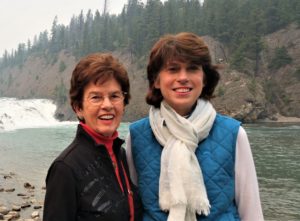
Alice and her daughter, Andrea in Canada – 2015
Clerks there had been notified. They were ready. “I’m sorry, Ma’am,” answered the agent on duty. “It is filed away in another building. We will be glad to send it to you.”
Even though they had my name and could look up my address, I wrote down my name and address and handed it to the clerk. Most likely, that little piece of paper found its way directly into the trash can. I was not naïve enough to expect to receive the policy, which, of course, never showed up in my mailbox.
“What was so special about the Executive flight?” I inquired of my colleagues when we met in the O’Hare terminal.
“Oh,” Dick Watkins said, “its purpose is just to pamper men. Passengers are given socks to use if they take their shoes off, and pillows, free drinks, and snacks to go along with their cigarettes.”
“Nothing special,” Dick Burns chimed in. “United thinks that paying attention to men gives them a competitive advantage. And, as you know, most business travelers are men.”
Dick W and Dick B were not impressed with the perks and agreed with me that Executive flights did not make sense, especially since they were clearly discriminatory. Both of my colleagues were tall, large men and would have preferred more seat and leg room rather than the pampering.
What went unsaid was that the flight attendants, by United policy, were single women, very attractive and practiced in providing good service. I’m sure they were not flirts. Neither were the men, but doesn’t anyone like to be pampered?
Discrimination thrived inside the airline companies as well as in policies affecting their passengers: no men or married women were hired by the major airlines in that decade to serve as flight attendants. If a woman married, she had to resign her position.
I put the matter out of my mind and continued my work on the project with the two Dicks. Later that year, as I prepared to go to Washington to join the Johnson Administration for a year, the situation popped back into my awareness. I felt a twinge of resentment. Executive flights were not only discriminatory on their face but affected business arrangements and relationships as well. I deserved to be treated fairly, on a par with my colleagues. How could airlines get away with such policies? I was convinced they shouldn’t.
Maybe I was just sensitive to the winds of change as I prepared to go to Washington, on leave from ETS, to assist in establishing the Job Corps as part of President Johnson’s War on Poverty. Once there, I began working with a young lawyer, Stan Zimmerman, who was also on the Job Corps Director’s staff.
One afternoon, as we were idly chatting, I told him about my experience with United’s Executive flight.
“Let’s have some fun,” he said, upon hearing my story. We determined that the Executive flights were still in use. Using his law firm’s letterhead, Stan wrote to United Airlines, representing me as his client and raising the question of the legality of their practice. He insisted the airline cease such discriminatory flights, pointing to the proposed civil-rights legislation that President Johnson initiated and was beginning to move through Congress. Quite likely, United’s practice was not yet illegal, but that did not stop Stan and me from rattling our sabers.
United Airlines acknowledged receipt of the letter but that was all: no admission of anything. That’s what we expected. Life went on and, in fact, became all-encompassing at Job Corps headquarters as we worked feverishly to develop the infrastructure of the program.
To our surprise and pleasure, a couple of months later we determined that, quietly, the UA “Executive flight” had taken a nose dive into the dust: no widely distributed press announcement, not even a newspaper article. Nary a murmur from a traveling businessman that elimination of the Executive flight reduced his productivity—remember, they were supposed to be segregated from women so they could work!
The flight merely disappeared from the list of arrivals and departures at airports and was no longer listed in the airline guide used by travel agents.
After work that day, Stan and I raised our glasses with a toast: “A Hand Up for Women’s Rights, and a new nail in the coffin of Inequality!”
About the same time, another woman from Weldon High School stuck her neck out. Jean Satterthwaite moved to New York City after graduation from the Woman’s College, married a school counselor/writer and, when looking for work, realized that The New York Times’ classified employment ads were divided according to MEN and WOMEN. In other words, not only was employment policy discriminatory in many places, job descriptions and classifications were as well.
Occasionally, the policy disadvantaged men, as in the case of UA’s policy on flight attendants needing to be women, but, by far, its sword fell most punitively on opportunities and prospects for women. Jean and a few other women organized a protest of The Times’ classification system by gender, which had been copied, quite naturally, by every other major paper in the country. They wrote letters, made telephone calls, and brought the policy to the attention of civic clubs and business associations, urging them to write and call as well.
The women were successful. After some foot-dragging and flimsy excuses, The Times backed down, realizing it lacked a defensible business reason to continue the practice. Things changed—want ads were listed by job classification, not gender.
Eventually, other major newspapers followed its lead. Jean went on to be the first president of the NYC chapter of the National Organization for Women (NOW).
Greg, who came to know both Jean and me, vowed there was something in the water we drank in Weldon or the food we ate in the dining halls of the Woman’s College. Where had the seeds of that independent, assertive, spunky spirit been planted?
Who knows?
Maybe the seeds were borne by the fast-flowing, powerful waters of the Roanoke River. Or by the toil of strong-willed, independent farmers and merchants, laboring without a government safety net to help them in hard times.
Maybe they were passed along in the discipline that Mr. Thomas, our school superintendent, enforced with his reliable sense of fair play.
Or maybe by the demeanor and actions of our role models, the women faculty at the Woman’s College, or the history and philosophy professors there who awakened dormant portions of our minds to show us new horizons. Or maybe the seeds germinated first in the rich black dirt of Eastern North Carolina that stuck to our feet and made us independent, adventurous Tar Heels.
September 2017
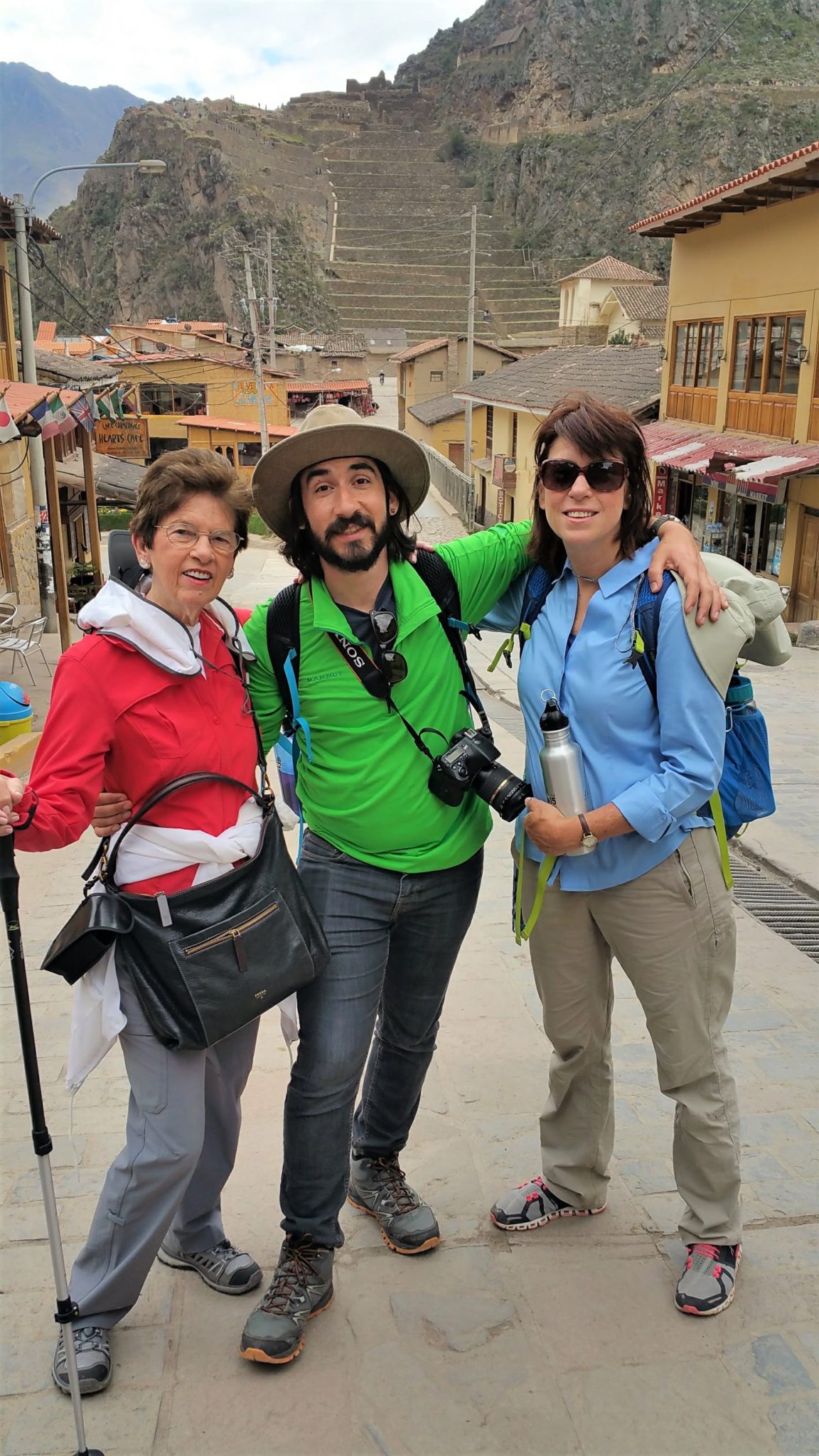
When I first met Alice Joyner Irby, I knew she had an extraordinary story to tell about her life, her family and people who crossed her path.
As she finished each chapter over a little less than year, I knew her extraordinary book was being created. And now it is here to be released in April as South Toward Home.
In this interview with Alice she tells what her book is about, why she wrote it and the importance of life as she journeyed through the early 20th century and the beginnings of the 21st.
Pictured in the photo, Alice, James, Andrea’s son, and Andrea, Alice’s daughter, in Sacred Valley, Macchu Pichu
OBXPG: What is the book about?
ALICE: There is a familiar saying, “May you live in interesting times,” offered by a British diplomat in 1936—just a few years after my birth. I have lived in interesting times—spanning more than seven decades of the 20th century and, now, two decades of the 21st.
During those years, I have witnessed and experienced times of economic depression, hot and cold wars, societal upheaval and assassinations, expanding civil rights and broadening opportunities, measles outbreaks and a polio epidemic, and extraordinary technological and medical breakthroughs.
My stories capture events and happenings in my life during these times of disturbance, crisis, tumult, accomplishment, and joy. They reveal ways in which I seized opportunities as doors opened and cleared fences that were in my path. They bring to life the people in my family, my circle of friends, and the mentors who guided me along the way.
 OBXPG: Why did you write this? What made you decide to do it?
OBXPG: Why did you write this? What made you decide to do it?
ALICE: I have always believed that personal stories make history real, and, like most Southerners, I like stories. I was inspired to put pen to paper to encourage my daughter, grandson, nieces, nephews and their progeny to learn something about their ancestors and how they handled the stresses, disappointments, and celebrations in their lives.
I became aware of how important human connections are in shaping and enriching one’s life. It seemed to me that readers in the future—not just my family—might benefit from learning about the influential roles that individuals play in the lives of others. And, I very much wanted to pay tribute to the men and women who guided and sustained me.
OBXPG: Is there anything else you want to say?
ALICE: Yes.
First, I want to say thanks to those heroes, both living and dead, who made my life rich and full.
Second, I want others to get to know the characters in my stories, for they are among the good-hearted, strong, independent people who helped make the 20th century the American century.
Finally, I want to celebrate life. This book is not a story of one life—but a story of life itself, the value of friendships, and the enduring qualities of love, kindness, and hope.
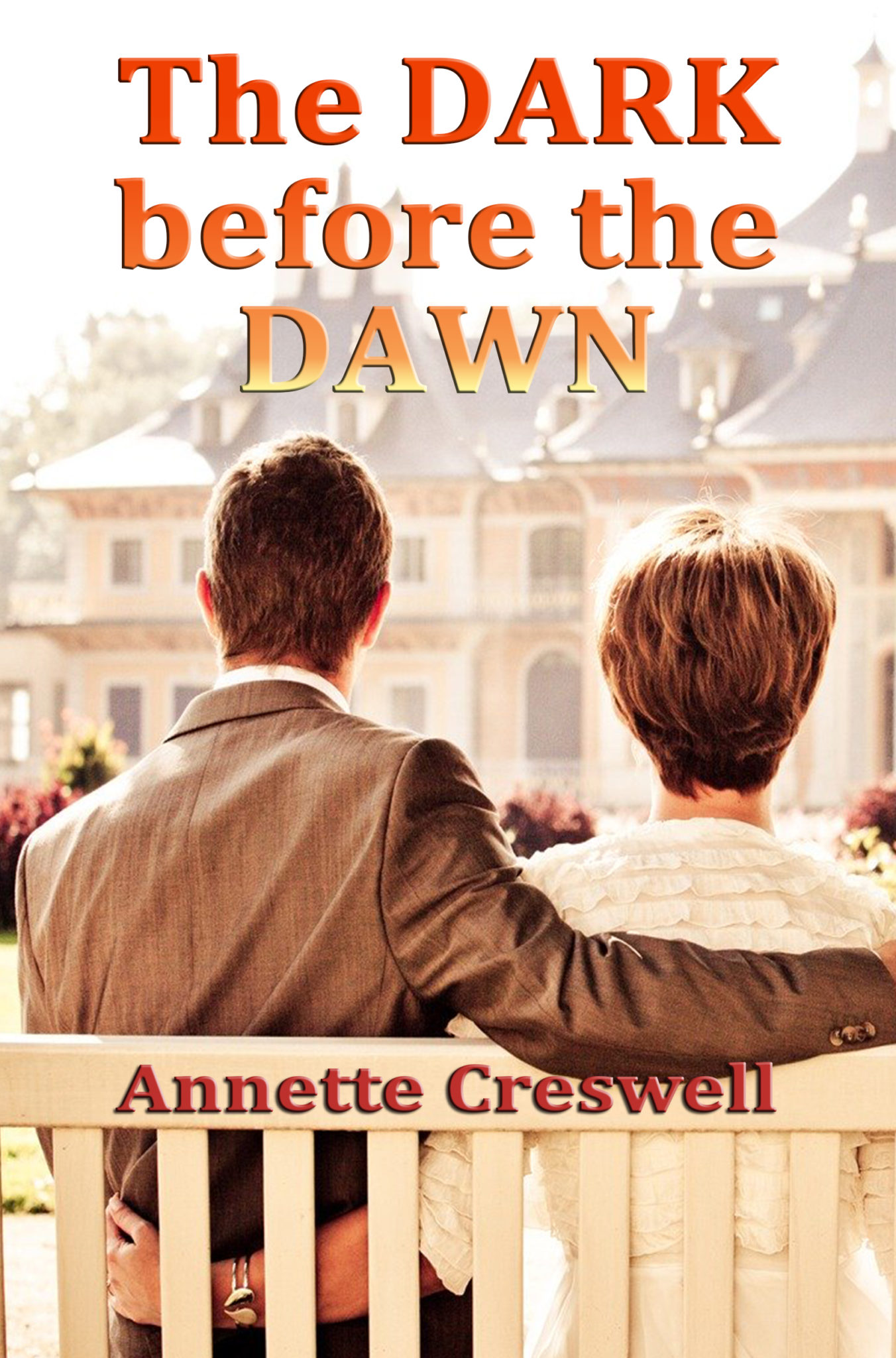
We interviewed Annette Creswell, author from Down Under about her new novel, The Dark Before the Dawn, a Downton Abbey-like family drama during the pre-years of World War II.
From an early age, Annette was encouraged to write and was awarded many prizes for English.
She had a short story published at the age of twelve however, due to the demands of raising a family, there was no time for creative pursuits.
Now retired, Annette has reignited her passion and has written a total of six books with the seventh nearing completion.
She has travelled extensively for pleasure to the United States, Europe, the UK and South-East Asia and her interest lies in novels set around the periods of the first and second world wars.
Annette lives with her partner, Stephen at Neutral Bay, a suburb on Sydney harbour in Australia. She has two sons, Mark and Brett, two grandsons, Jaime and Flynn and a sister, Maree.
The Dark before the Dawn is her second published novel and it is available on Amazon and fine bookstores everywhere.
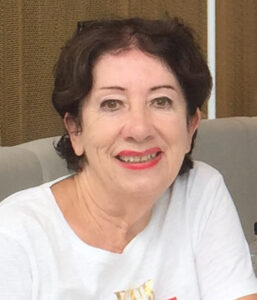 OBXPG: What is the theme of The Dark Before the Dawn?
OBXPG: What is the theme of The Dark Before the Dawn?
Annette: The Dark Before the Dawn is a romantic drama set before and during the second world war in England.
OBXPG: What do you hope to accomplish with The Dark Before the Dawn?
Annette: I hope the readers will enjoy a story replete with humor, romance, drama and tragedy and be left with a feeling that good things can occur when you least expect them. All the characters are credible and the readers can relate to them and have empathy and sympathy for them.
OBXPG: Why did you write The Dark Before the Dawn? Does it reflect your real life in any way?
Annette: I was inspired to write the novel as I have a keen interest in midwifery and I loved the series, Downton Abbey. I also am interested in interpersonal relationships and admire those who can surmount tragedy and suffering encountered in their lives. I have travelled to the European places mentioned in the book staying at a friend’s house in Sarlat, France. The chapel I visited in Rocamadour was where my friend’s mother was married. The chateau in which Peggy and Charles spent their wedding night was based on Chateau D’Esclimont in the Loire valley where I spent one night with my former husband. The chateau was surrounded by a moat in which a dinghy floated but unlike Peggy and Charles we did not avail ourselves of it but admired it from the bank.
OBXPG: How did you come up with storyline(s)?
Annette: I did not have a set plan. The story seemed to take on a life of its own and evolved as I continued writing.
OBXPG: What inspired you to write The Dark Before the Dawn?
Annette: I have a keen interest in novels set around the periods of the world wars and was inspired by my favourite authors, Julian Fellowes, Sebastian Faulks and Evelyn Waugh whose writing style I can only hope to emulate! As previously mentioned, I have a great interest in the nursing profession especially midwifery and would adore to live in a grand house such as Hagley Hall in the English countryside and be waited on by a bevy of staff.
Just before the start of World War II, Peggy Davis, a London midwife, has a chance encounter with a stranger that changes her life forever.
When Peggy meets Charles, a wealthy lord as she boards a bus in front of Harrods department store, fate casts them together.
When Charles’ wife, Diana, and first child die in childbirth, Peggy, and Charles are thrust into a relationship of happiness, sorrow and unexpected tragedy.
They ultimately marry, have a son and adopt an east end refugee boy from London.
What transpires is a web of family dramas a la Downton Abbey with lesbian relationships, Nazi sympathizers and family secrets revealed as Peggy attempts to navigate through her new life from midwife to lady of the manor.
Paperback: 236 pages
Publisher: Outer Banks Publishing Group
Language: English
ISBN-10: 1734168722
ISBN-13: 978-1734168723
Product Dimensions: 5.5 x 0.6 x 8.5 inches
Shipping Weight: 13 ounces

We interviewed Terrence Hart about IMES, his new dystopian novel that dives deep into the battle between good and evil and how evil not always needs to the personified as a villain to succeed.
Terrence Hart is a writer, a musician, a yachtsman, an adventurer. With over a decades experience in audio production and composition, and regular contributions to Furst Media’s online and press publications, Terry offers a uniquely aberrant voice in this, his debut work.
Terry studied Science at Melbourne University in Australia and is a keen enthusiast in modern physics and medicine. He lives and works out of his home in Melbourne Australia, and in his downtime, enjoys exploring Earth with his partner Laura, and their pup Dallas.
OBXPG: What is the theme of IMES? Is it a harbinger to things to come?
TERRY: A recurring theme throughout literature has been the age old battle between Good and Evil, and in this respect, Imes is no different. However, the intention behind writing Imes was to suggest that ‘Evil’ is not necessarily something that needs to be personified.
We all love to hate a villain, whether it be a fictional character, or someone that the media has singled out; but the reality is that these individuals never believe that they are in the wrong, and can therefore not be considered ‘Evil.’ So at the risk of sounding ‘Lovecraftian,’ the concept behind Imes is that the only ‘Evil’ that exists is that which we create.
Whether or not this is a “harbinger” as you say; I guess only time will tell.
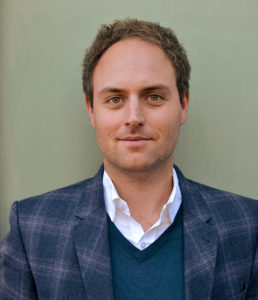
Author Terrence Hart
OBXPG: What do you hope to accomplish with IMES?
TERRY: I wrote this book to try and dispel the idea that anyone is ever truly evil; even though history isn’t on my side.
We all have our own demons, and we all do the best we can with what we’re given, and although it may be convenient to label someone a villain if they don’t have our best interests at heart, it is hardly constructive.
I believe there is far more wisdom in trying to comprehend ones motives, than there is in name-calling.
OBXPG: What is the goal/purpose of the story? Why did you write IMES?
TERRY: IMES is a fanciful look at a world descending into chaos, and by no means a political ideology. But it does push the clear narrative that political upheaval, and rejuvenation, is not only necessary, but inevitable.
I believe that a lot of our planet’s population feel helpless, and insignificant, and although they would like to change the world, they don’t feel that it’s a realistic objective.
My greatest aspiration in writing Imes, is that I might encourage the idea that you should always stand up for what you believe in, and that looking beyond yourself and considering humanity as a whole is something to be admired. Might it inspire some heated debates at dinner tables? I sure hope so.
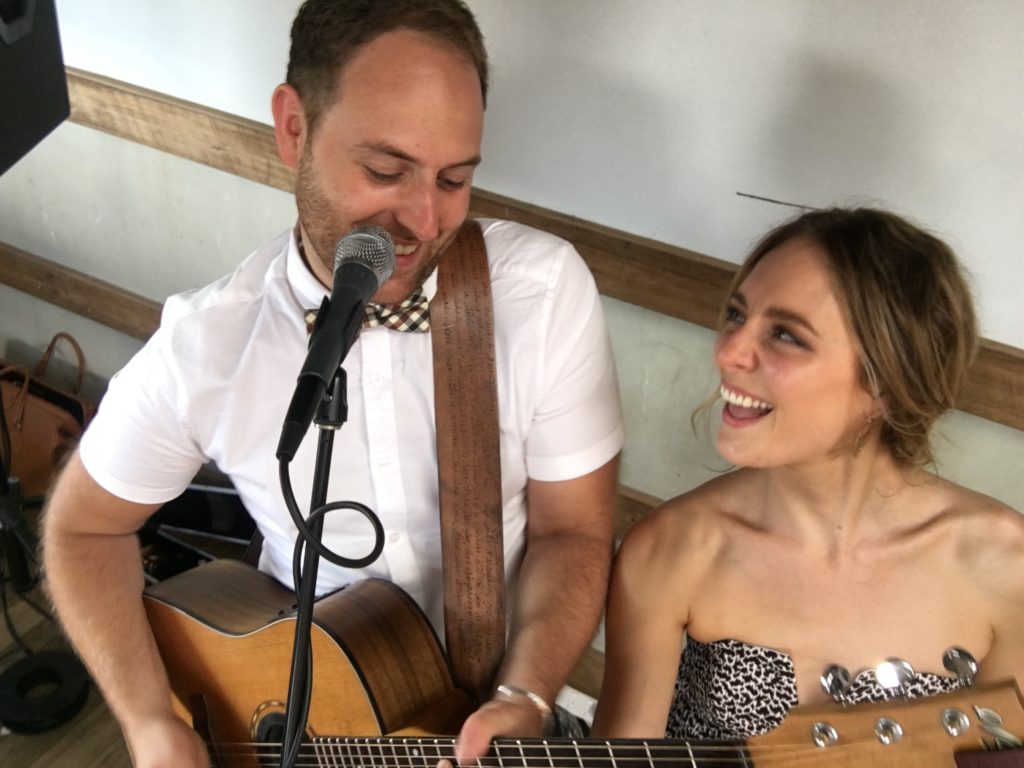
Terry Hart and his wife, Laura, during a rehearsal.
OBXPG: How did you come up with storyline(s)?
TERRY In many ways the storyline for Imes was reverse engineered. I had the protagonist, and I had his arc, but his journey had me stumped for quite a while. I didn’t want to tell his story, I wanted to tell the story of those who met him, and also not ruin the suspense by giving away the details.
In the end I decided that third person accounts of the protagonists journey was the only way to keep an air of mystery. Because Imes isn’t really supposed to be a character, but the version of ourselves that is entirely unencumbered by fear.
OBXPG: What inspired you to write IMES? It is related to current or past events?
TERRY: The inspiration for Imes came a long time ago, from an epiphany I had as a child. Like any other child, I enjoyed the odd superhero movie, and even though I adored the hero, I would always find myself sympathizing with the arch-villain.
It seemed to me that the villain would always have a reasonable explanation for their actions, and were always fighting for something they believed in, and in contrast, the hero was simply fighting because that’s what a hero does. It was a simple distinction, but it really affected me as a child when I realized that Lex Luthor was this passionate, hyper-intelligent modernist; and by contrast, superman was little more than a brute.
Of course in the real world, there are no superheros; there are however villains. IMES is the realization of an archetypal arch-villain, who in the absence of a hero, is able to see his plan to fruition.
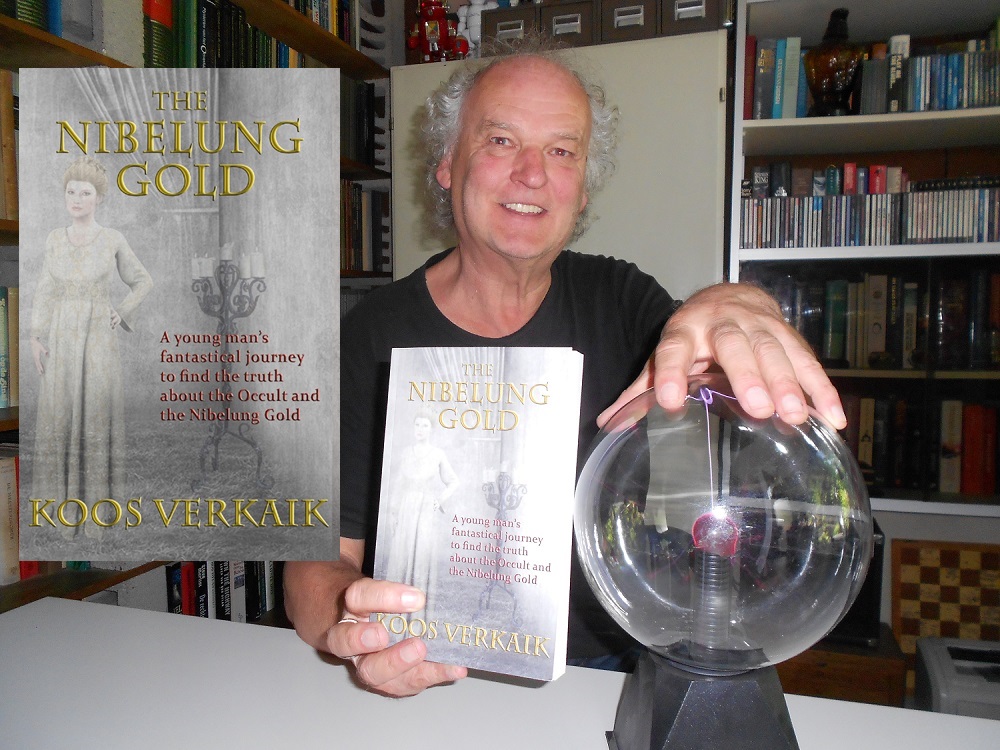
Outer Banks Publishing Group author Koos Verkaik’s newest book, Nibelung Gold, takes the reader into the world of the paranormal with a twist. He was recently interviewed about Nibelung Gold by Lauretta L. Kehoe, an avid reader, blogger and book reviewer. Here is are some quotes from her interview with Koos Verkaik.
“I am interested in everything that has to do with magic. Have a nice collection of books about all the mysteries in the world, about human history, about alchemists, about… everything! More than often I need no more than one single idea to create a book. For The Nibelung Gold I was thinking: what, if a group of magical fortune tellers concentrate together on one person, what will happen to him? I combined that with the old European saga of the Nibelung Gold and started writing. I am very happy with the result. This is a book for people who like to know more about occult events from the past.”
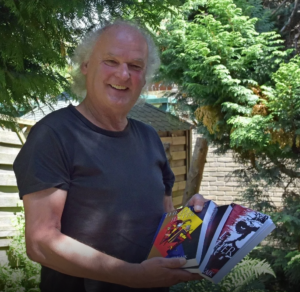
Koos has written over 60 books and furiously continues to write new novels full time in his home outside of Rotterdam in The Netherlands.
“Novels, series of children’s books, hundreds of scripts for comic artists, wrote songs and made albums and was a copywriter. To make a living, I wrote 4 books every month for a big distributor. Always had inspiration, never had a writer’s block. Sit down, start writing… The same way a painter can be obsessed and never puts his brush away.”
As Koos has said, “Writing is as necessary as breathing to me!”
Read the rest of the interview here>